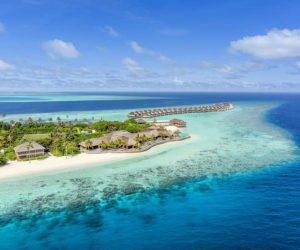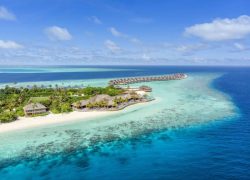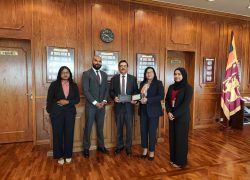A new initiative to foster environmentally responsible tourism has officially commenced in the Maldives, marking a progressive step toward aligning the country’s tourism practices with global sustainability standards. Minister of Tourism and Environment, Thoriq Ibrahim, inaugurated the Project Preparation Phase of the Integrated Collaborative Approaches for Sustainable Tourism (iCOAST) Maldives Project, reflecting the nation’s deepening commitment to responsible tourism development.
The iCOAST Maldives Project aims to transform the tourism sector by encouraging nature-based, net-zero, resilient, zero-waste, and pollution-free approaches across resorts, guesthouses, and related businesses. At the core of the project is the objective to foster a more sustainable policy and regulatory framework, while introducing innovative financial tools that support the shift toward greener operations. This effort is expected to benefit not only large-scale tourism operators but also local communities, small enterprises, and environmental stakeholders across the archipelago.
Funded by the Global Environment Facility (GEF), the iCOAST Maldives Project is being implemented in partnership with the United Nations Industrial Development Organization (UNIDO) and spearheaded by the Ministry of Tourism and Environment. The collaboration aims to leverage international expertise and funding to build the necessary infrastructure and support mechanisms for sustainable tourism practices to thrive in the Maldives.
To officially introduce the project to key stakeholders, an inception workshop was held on Wednesday, gathering more than 50 participants from the country’s tourism sector. Attendees included representatives from high-end resorts, tourism associations, environmental experts, and government officials. The workshop provided a platform for discussion on project strategies, expected outcomes, and the collaborative roles of various stakeholders in driving forward the Maldives’ green tourism agenda.
Minister Thoriq emphasized that the launch of this initiative reflects a vital step in ensuring that tourism growth in the Maldives does not come at the expense of its fragile ecosystems. He reiterated the Ministry’s long-standing commitment to integrating sustainability into every facet of the tourism sector, a move that resonates strongly with global travelers who increasingly prioritize eco-conscious destinations.
With over 1,200 coral islands and a marine environment that attracts visitors from around the world, the Maldives is uniquely positioned to lead the way in sustainable island tourism. The iCOAST project is expected to support long-term climate resilience and environmental stewardship, while also enhancing the Maldives’ appeal to the growing market of eco-tourists.
By championing such forward-thinking initiatives, the Maldives continues to reinforce its image as not only a world-class destination of natural beauty but also as a responsible steward of the environment, offering tourists a more enriching and environmentally respectful travel experience.



 advertisment
advertisment




 advertisment
advertisment





